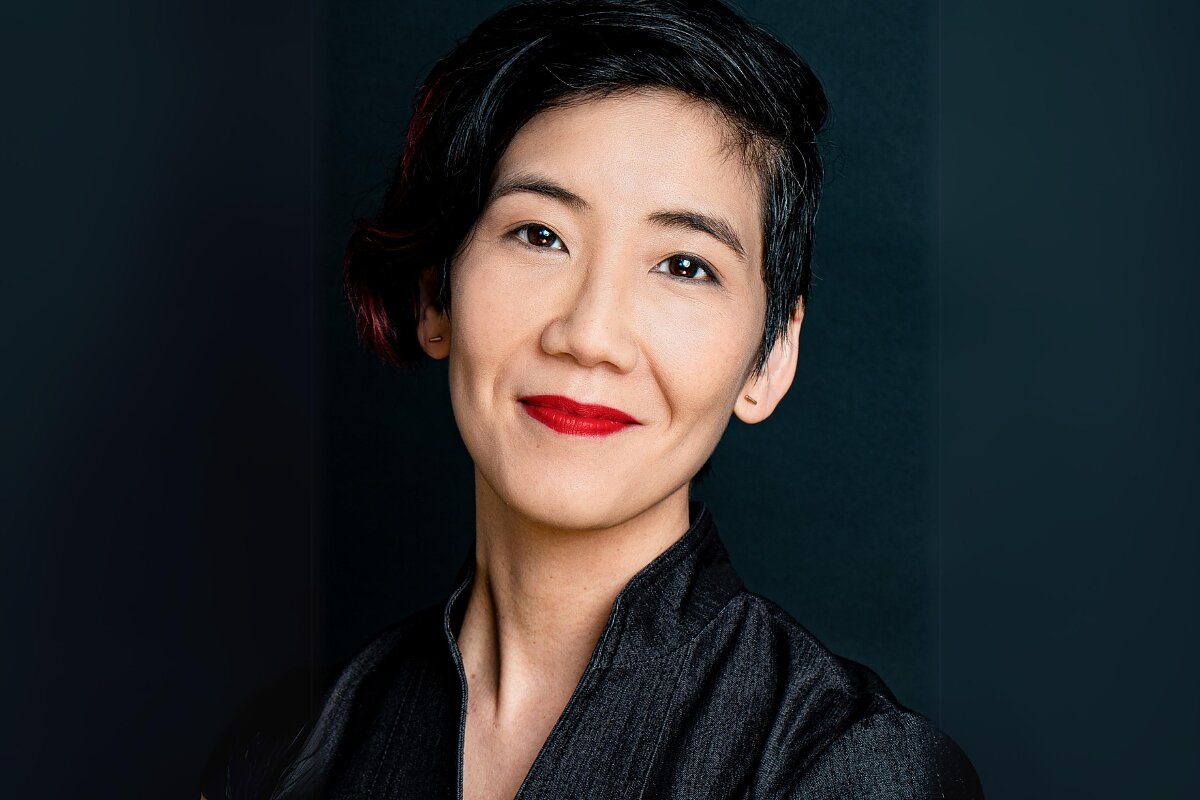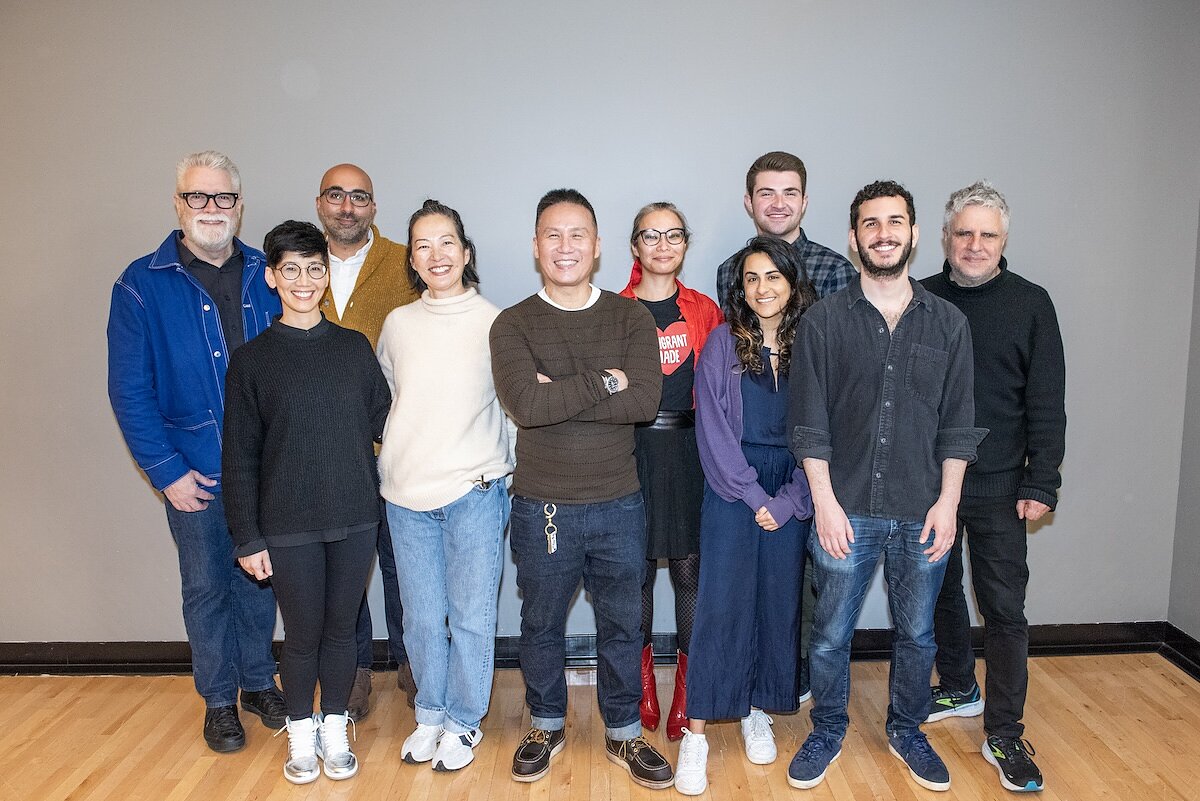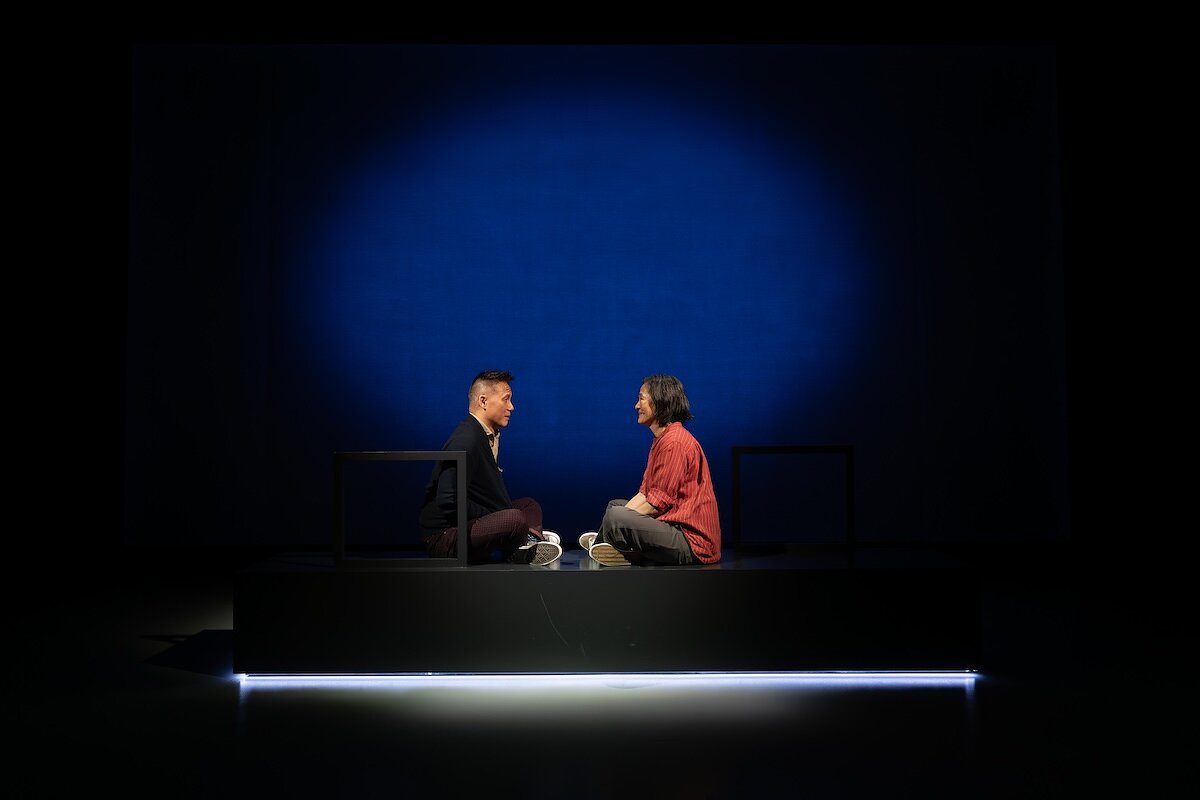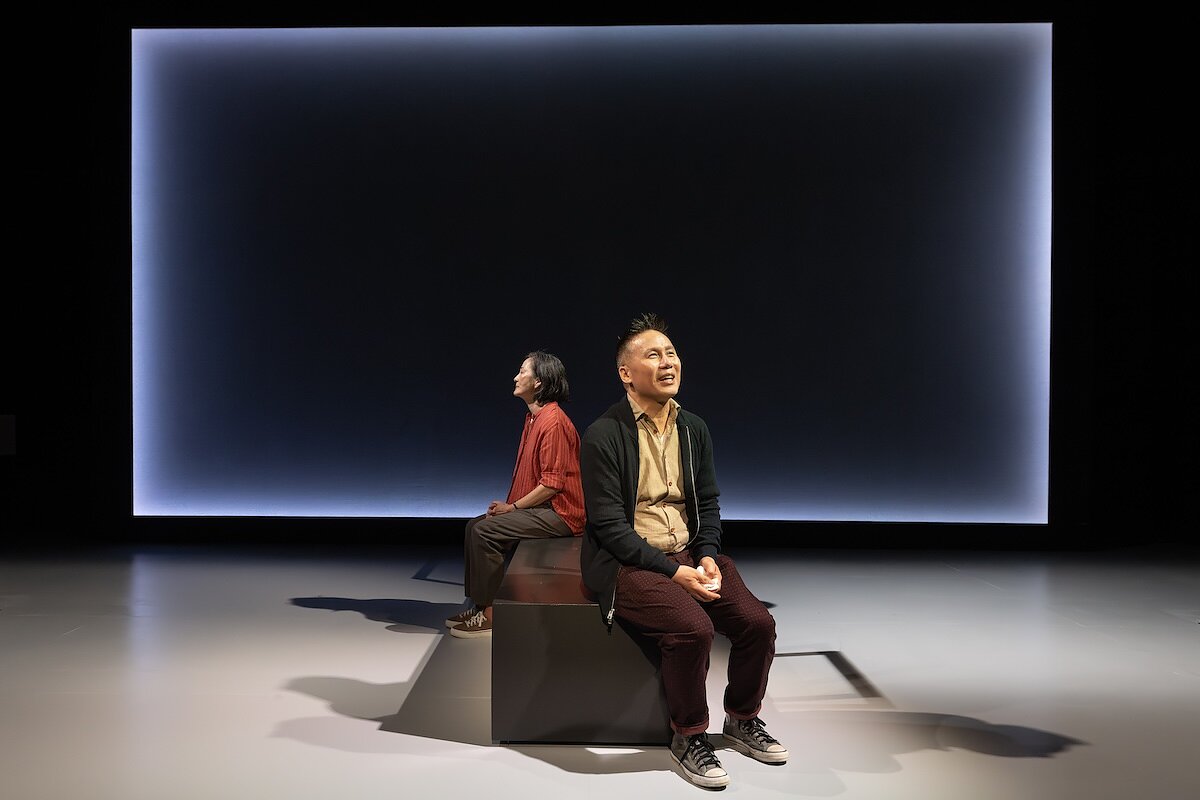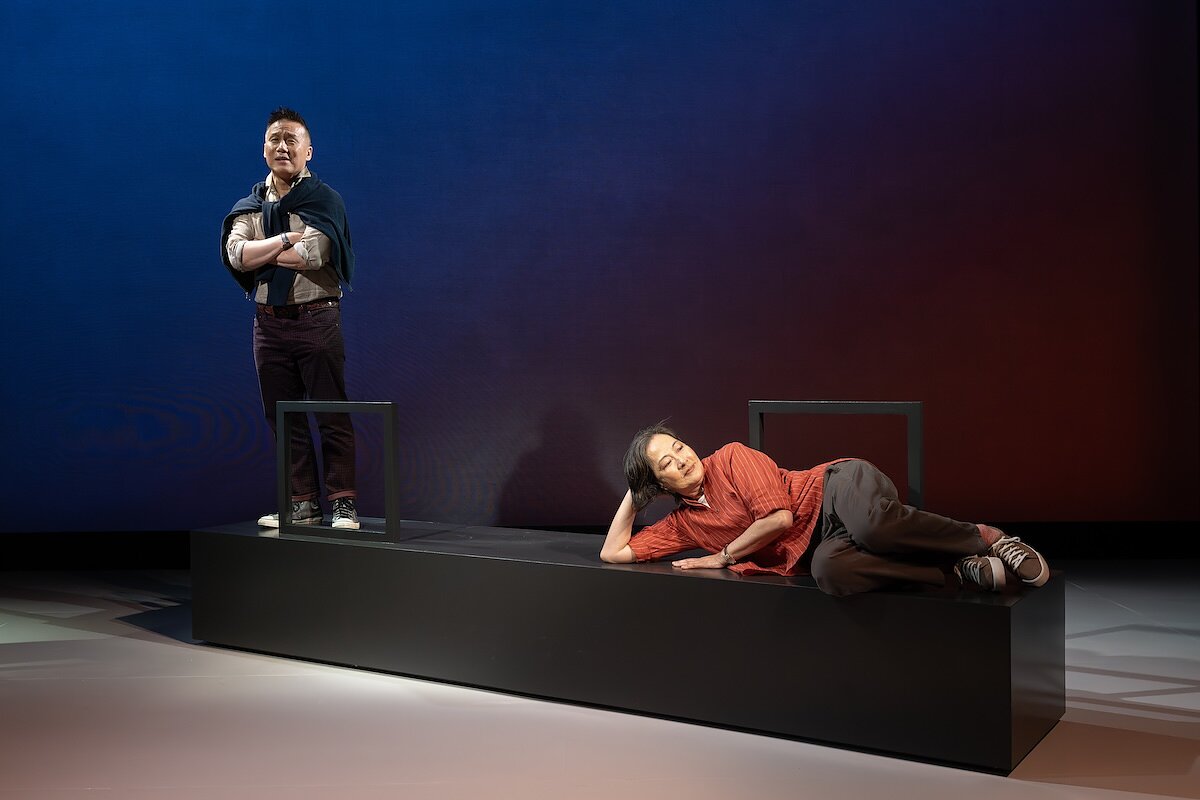Jennifer Chang on Directing the Immigrant Experience
Jennifer Chang first discovered her love for theater the way many kids do—through school. Growing up as a Filipino-Chinese American in San Francisco, however, she had to navigate the usual parental disapproval of a career in the arts. Now, as a stage director for over a decade, Chang has woven a tapestry of the Asian American experience, exploring the warps and wefts of the identity.
She is currently directing Shayan Lofti’s play What Became of Us at the Atlantic Theater Company. Focusing on siblings born in two separate worlds—one from the “old country” and one of “this country”—this production made the novel decision to swap its cast during its run to illuminate the universality of the immigrant experience. From May 17 to June 15, Rosalind Chao & BD Wong will be performing. Between June 10 and June 29, Shohreh Aghdashloo & Tony Shalhoub will take the stage. On the overlapping dates of June 10 to 15, audiences can enjoy a back-to-back double-feature with both sets of casts.
During early previews of What Became of Us, writer Caroline Cao chatted with Jennifer Chang over the phone to discuss the development of the production, her career, the need for complexities within immigrant stories, and the longing for ethnic joy.
JC: He’s awesome. I first met him during the pandemic through a theater company in Los Angeles, called Boston Court that’s run by a woman named Jessica Kubzansky. Both the organization and the artistic director are wonderful. Jessica basically played matchmaker and said, “I think you would love this play.”
I worked on a workshop via Zoom with Shayan and [I] just loved him [and] tried to pitch his play to anyone who would listen. I finally met Shayan in person at South Coast Rep at the Pacific Playwrights Festival. I was pleasantly surprised to be asked to direct this piece.
JC: The original-original text was a 10-minute play that Shayan wrote for an event called “Mixed Fest” where writers are prompted to write 10-minute pieces in response to a prompt. The prompt was “first gen” and Shayan wrote a piece that was intentionally racially agnostic, [asking] “What are some universal aspects of being first gen” and “What does first generation even mean?”
That was the genesis of the play. I think the response to the 10-minute play was so strong that the Atlantic Theater Company suggested that he try to write a full length.
From then on, Shayan wanted there to be more than two casts. He wanted to illustrate how universal some immigrant experiences are so he wrote that into the description of a play. The Atlantic was bold enough to want to invest in the experiment of having more than one pair of siblings.
JC: I think the most awesome, beautiful thing that can happen for an audience is for them to remember and think about their own lives and loved ones. The audience always completes the theatrical experience for any play. A play isn’t just done in a vacuum—it is done with an audience in mind.
I would like to think that this play takes that even further. The way that the staging has been put together, and the way that the actors stylistically are going to be performing the play is really about inviting the audience to imagine both what the “old country” is and also what the experiences are. Hopefully they feel like their own lives are being reflected on stage, no matter their ethnicity.
JC: We have the same stage manager and they described it as being a totally different production, which is awesome. What drew me to that piece is the personal nature of having grown up in the Bay Area and that story being located there.
So many people who came to the show had no idea that that had happened, and were inspired to find out more. We had people return multiple times to watch the piece or bring friends because they felt that it was that important for other people to know about the story. And I heard that friends of friends have been talking to other people asking, “Did you know that this happened?” To feel like an artistic piece can have that kind of reach, that’s pretty much why we do this, right?
JC: That’s a really good question. The AAPI experience is a great diversity of experiences. Our stories aren’t simple. I think that’s something to be embraced.
To be able to criticize our own journey in the United States is also important. There are two plays that are happening in Los Angeles right now by a playwright named David Johann Kim, who is investigating the events of the Rodney King Uprising and the violence and skirmishes that happened between the Korean American and African American population during that time.
His play investigates that from two different directions, [first] during the time of the riots and a few years after to examine the fallout from that incident. I think this unflinching look at how we are dealing with our own racism is important.
I think that’s part of the complexity of being in the United States—we’re not a homogenous community. We’ve participated in racial structures. We must look toward dismantling and not participating in these structures of institutional racism. It’s gonna be complicated and it’s not always going to be hunky dory.
But I’m also passionate about demonstrating joy. I think in some ways, American theater is sometimes uncomfortable with ethnic joy. It gets programmed less and it seems like stories of sad people of color are more of a thing than joyful people of color. I would really love to embrace the full range of emotions and celebration and how we pursue happiness.
JC: I get this question a lot. I always say that I don’t have advice to give because I feel like I did everything wrong. I live in the wrong city, Los Angeles, to be directing theater. I had kids at a point in my career where it felt like I had derailed my trajectory.
But despite feeling like I’ve done a lot of things “wrong,” I feel that the privilege I have is the courage to make the decisions that need to be made. At the end of the day, the most important thing to me is my family. That really gives me so much perspective on the task at hand.
If people think that my career is something to seek advice from, I guess the only thing I can share is that I am always following my curiosity. I don’t make decisions based on what would be good for my career. [My ideal project] would satisfy my curiosity—time is precious. If I’m going to spend time away from my family, it has to be worth my time.
